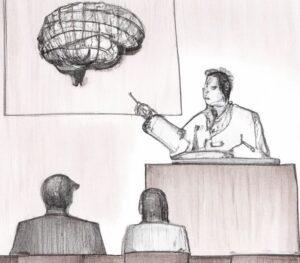Traumatic brain injury (TBI) in dogs can be a significant concern for pet owners and veterinary professionals alike, reflecting a complex interplay of care, recovery, and understanding. Initially, it’s imperative to delve into the causative factors of TBI in dogs, which predominantly include accidents such as falls, vehicle collisions, and blunt force trauma. Consequently, these incidents can lead to varying degrees of injury, ranging from mild concussions to severe brain damage.
Symptoms
Moreover, the symptoms of TBI in dogs can be multifaceted and may manifest differently depending on the severity of the injury. Initially, pet owners might notice signs such as disorientation, lethargy, or loss of consciousness in their canine companions. Additionally, more severe cases may present with seizures, difficulty in coordinating movements, or even coma. Therefore, these symptoms necessitate prompt and thorough evaluation by veterinary professionals to ascertain the extent of the injury and devise an appropriate treatment plan.
Diagnosing
Furthermore, diagnosing TBI in dogs may involve a comprehensive approach incorporating clinical assessment and advanced diagnostic tools. Initially, veterinarians will perform a thorough physical examination to evaluate the dog’s neurological status. Subsequently, diagnostic imaging techniques such as X-rays, magnetic resonance imaging (MRI), or computed tomography (CT) scans are employed to visualize the extent of the brain injury. Consequently, these diagnostic measures are pivotal in formulating an effective treatment strategy tailored to the individual needs of the injured dog.
Treatment for TBI in Dogs
Treatment strategies for TBI in dogs are varied and are contingent upon the severity of the injury. Initially, stabilization of the patient is paramount, focusing on maintaining adequate breathing and circulation and preventing further brain damage. Subsequently, medical treatments may include the administration of medications to reduce brain swelling, manage pain, or control seizures. Additionally, in more severe cases, surgical intervention may be necessary to alleviate pressure on the brain or to repair skull fractures. Consequently, the overarching goal of treatment is to support the dog’s recovery and optimize their quality of life. Unfortunately, due to the high costs and uncertain outcomes, expensive veterinary treatments may not be economically feasible.
Recovery
Recovery from TBI in dogs is a gradual and multifaceted process, often requiring sustained rehabilitation efforts. Initially, the recovery phase may involve rest and restricted activity to allow the brain to heal. Subsequently, physical therapy, including exercises designed to improve mobility and coordination, can be beneficial in enhancing the dog’s functional recovery. Additionally, cognitive rehabilitation exercises may address any behavioral or cognitive deficits arising from the injury. Therefore, a multidisciplinary approach involving veterinarians, rehabilitation therapists, and the pet owner is essential in fostering a supportive environment conducive to recovery.
Conclusion
In conclusion, traumatic brain injury in dogs is a complex condition that demands a nuanced understanding of its causes, symptoms, diagnosis, and treatment. Initially, recognizing the signs of TBI and seeking prompt veterinary care are crucial steps in addressing this condition. Subsequently, through a combination of diagnostic evaluation, tailored treatment plans, and comprehensive rehabilitation efforts, many dogs can recover from TBI and lead fulfilling lives. Consequently, it underscores the importance of awareness, prompt action, and the commitment of pet owners and veterinary professionals in navigating the challenges of TBI in dogs.






